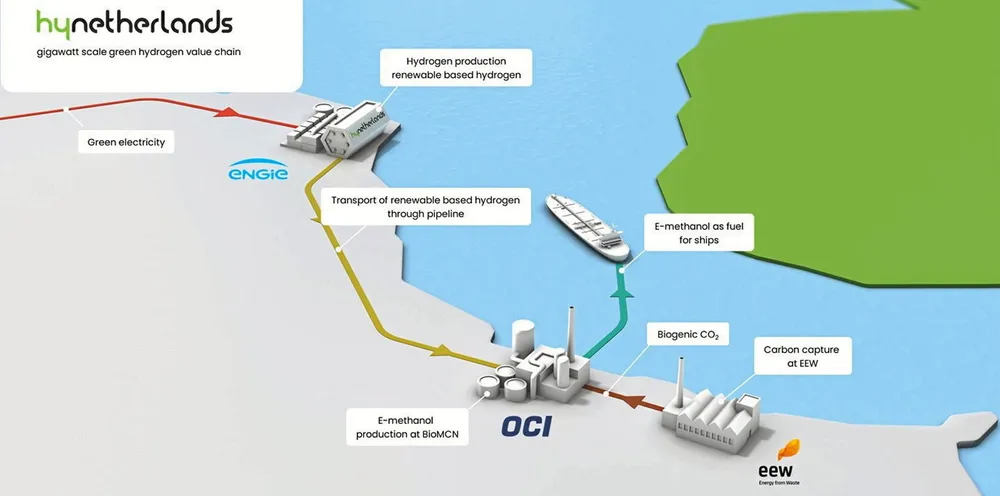Offshore wind to methanol | Engie and partners to combine 1.85GW of green hydrogen with captured CO2
Previously announced HyNetherlands project has been reshaped to produce green methanol, which ‘will help lower Europe’s reliance on imported natural gas’
